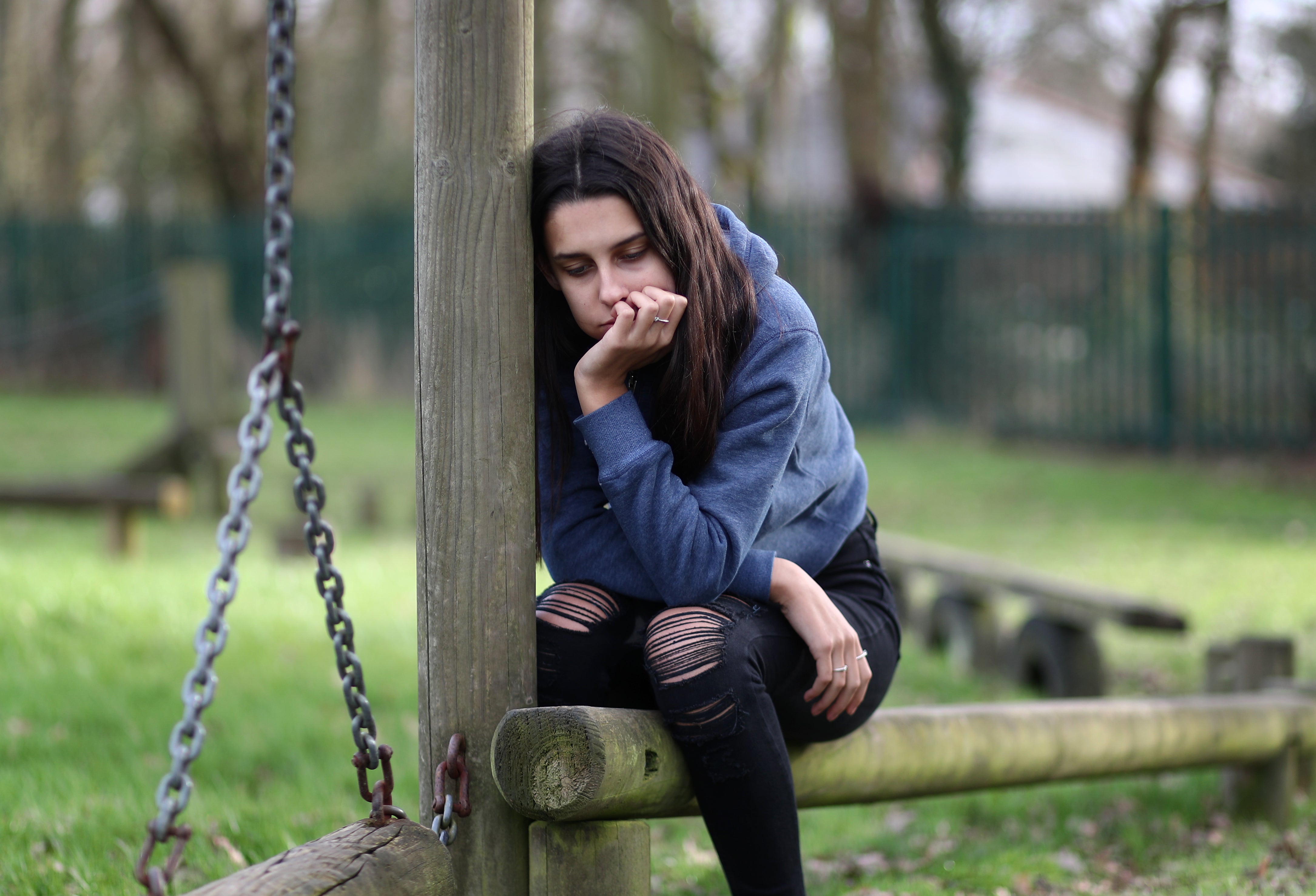Surge in mental health problems among teenagers is ‘national emergency’ Government warned
‘The government need to prioritise the crisis in youth mental health as a matter of national emergency,’ warns charity.

Your support helps us to tell the story
From reproductive rights to climate change to Big Tech, The Independent is on the ground when the story is developing. Whether it's investigating the financials of Elon Musk's pro-Trump PAC or producing our latest documentary, 'The A Word', which shines a light on the American women fighting for reproductive rights, we know how important it is to parse out the facts from the messaging.
At such a critical moment in US history, we need reporters on the ground. Your donation allows us to keep sending journalists to speak to both sides of the story.
The Independent is trusted by Americans across the entire political spectrum. And unlike many other quality news outlets, we choose not to lock Americans out of our reporting and analysis with paywalls. We believe quality journalism should be available to everyone, paid for by those who can afford it.
Your support makes all the difference.The NHS faces a “national emergency” as one in four 17 to 19-year-olds are now likely to have a mental health problem, new data suggests.
The prevalence of conditions among the age group increased from 17 per cent in 2021 to 25.7 per cent this year, the health service says.
There has also been a significant increase in seven to 16-year-olds who have a probable mental health issue since last year, to 18 per cent from 12 in the last year.
Mental health charities Mind and Rethink have warned the government the state of children’s mental health is now a “national emergency.”
The figures come afterThe Independent reported on the escalating crisis in mental health services, with healthcare leaders warning the NHS did not have the capacity to meet demand.
Internal NHS data suggests more than 1,000 children are attending A&E for a mental health crisis each month, while 20,000 children a month who should get community mental health care are missing out.
Brian Dow, deputy chief of Rethink Mental Illness, said: “Today’s news that the number of young people experiencing mental illness has again rocketed should rouse the government from its slumber.
“In the last few years the nation’s mental health has suffered under the weight of the pandemic and the escalating cost of living crisis, yet the government seems to believe the previous plan and the funding attached to it will somehow meet the scale of the challenge.”
He said the UK was heading into a “public health crisis” which could take decades to recover from and urged the government to treat the situation as an emergency.
Rethink has called for the Government to establish a national taskforce in response to the state of mental health services.
An annual report on mental health prevalence in children and young people, published on Tuesday by NHS Digital, showed “probable” mental health issues among those aged seven to 10 were almost twice as high in boys, at 19 per cent, as in girls at 10 per cent.

However, among 17 to 24 year-olds, one third of young women are estimated to have a disorder compared to 13 per cent of young men within this age group.
The estimates, based on a sample of 2,866 children and young people, found children with a likely mental health problem were more likely to live in a house that is struggling financially.
Among seven to 22-year-olds with a probably mental health disorder, 14 per cent, reported living in a household not able to buy enough food or had been using a food bank this year. This is compared to 2 per cent of those without a probable mental health disorder.
Sophie Corlett, interim chief for charity Mind said the figures were “deeply worrying” and reflected the upheaval within young people’s lives during the pandemic.
She said: We’re also seeing the toll of the cost-of-living crisis on young adults with mental health problems, who were seven times more likely than their peers without mental health problems to have used food banks or experienced food insecurity in the last year.
“Despite the need for support continuing to rise, young people are still left facing an agonising wait in a system that cannot keep up with demand, and the UK government’s response so far has just not been good enough.
“The UK government will be failing an entire generation unless it prioritises investment in young people’s mental health services, and specifically funds mental health hubs for young people.
“Young people and their families cannot be side-lined any longer by the government, who need to prioritise the crisis in youth mental health as a matter of national emergency.”
The findings also looked at specific issues such as eating disorders and found two-thirds of 17 to 19 year-olds and 20 to 23 year-olds had a possible eating problem.
Director of external affairs for eating disorder charity Beat, Tom Quinn, said: Sadly, the pandemic has had a huge impact on people with eating disorders, with many experiencing higher levels of stress, isolation and anxiety since the pandemic begin.”
Minister for mental health for the DHSC, Maria Caulfield said: “These figures highlight how important it is that we do everything we can to support our children and young people with their mental health.”
She said the government had promised in 2019 to invest an additional £2.3 billion a year into mental health services and has committed to increasing the number of mental health teams in schools to 400, covering 3 million children, by April 2023.



Join our commenting forum
Join thought-provoking conversations, follow other Independent readers and see their replies
Comments